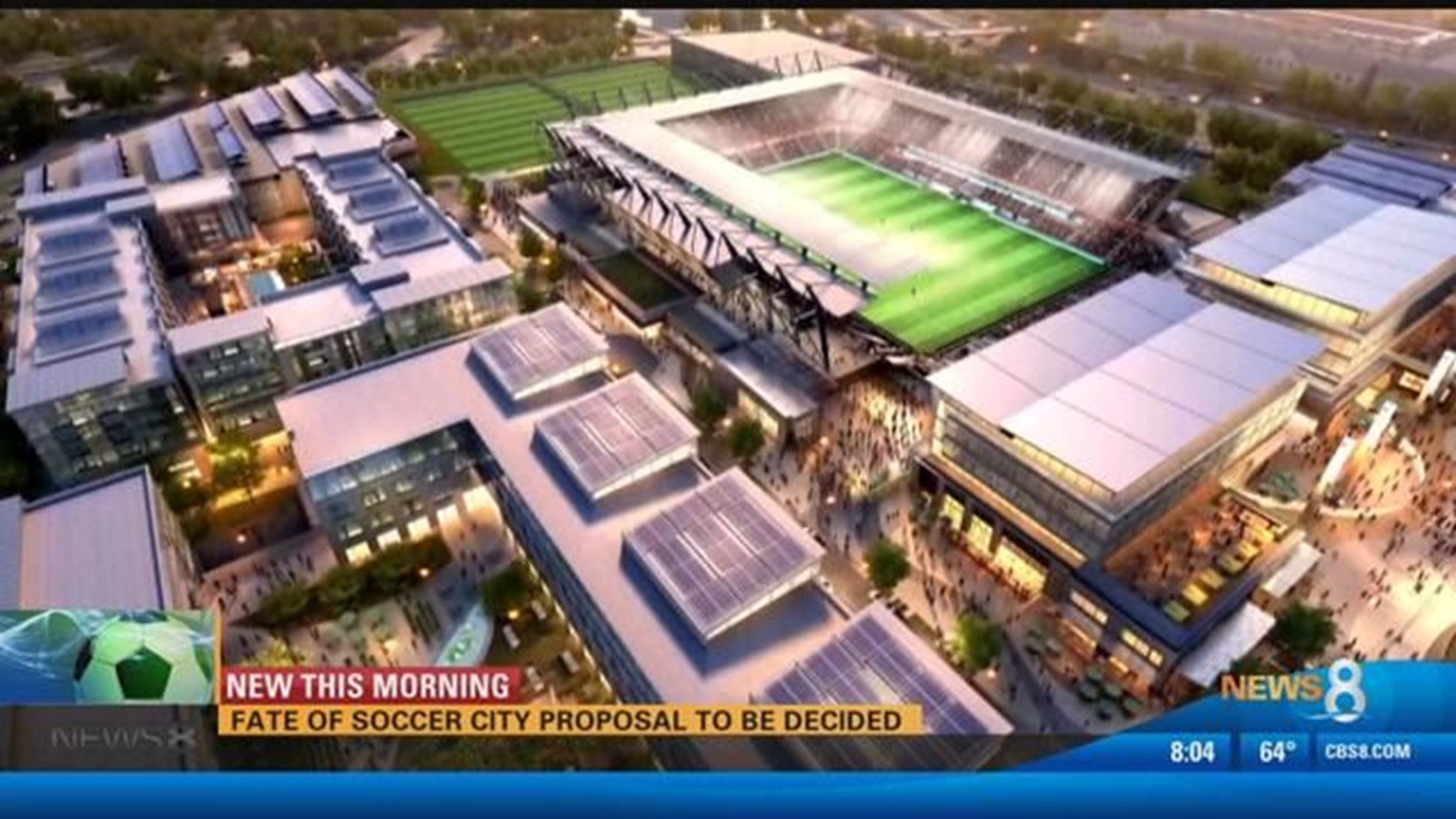SAN DIEGO (CNS) - The City Council Monday unanimously opted to place the proposed SoccerCity redevelopment of the Qualcomm Stadium property in Mission Valley before San Diego voters, most likely for the November 2018 general election ballot.
In so doing, the council left the door ajar for an earlier special election, as called for by the project's developers, led by FS Investors of La Jolla, and supporters. The developers collected enough valid signatures on petitions supporting their project to require the council to either set it for a vote or adopt it outright.
All sides favored a vote -- for FS Investors, passage would provide greater legal protections than simple council adoption.
They had hoped for a special election this fall -- before Major League Soccer makes decisions on expansion franchises -- but the council recently ruled out a vote before next year. FS Investors has applied for a new MLS franchise.
"SoccerCity is not the only option for Mission Valley and we shouldn't buy into rhetoric that says otherwise," Councilwoman Barbara Bry said.
Councilman David Alvarez said he hopes the extra time will allow for a better proposal to emerge, particularly one that addresses the interests of San Diego State University.
SDSU boosters contend that the stadium land, available now that the Chargers have moved to Los Angeles, should be used for campus expansion and a smaller stadium more suitable to college football.
Joe LaCava of the Public Land, Public Vote Coalition, urged the council to "take a breath" open the property up to a competitive process.
"What we have now is just a massive land grab," LaCava said. "It's a windfall for FS that would be the largest transfer of taxpayer wealth in San Diego history."
On the other side, SoccerCity investor Steve Altman said his group was the only one that was prepared for the Chargers decision to leave San Diego. The MLS expansion timeline required them to move quickly after the football team announced its decision, he said.
"Unfortunately in this city, and especially in today's divided environment, even the best intentions get mischaracterized and attacked," Altman said.
"In an effort to discredit us and our project, the opposition -- funded by two very politically connected local developers seeking to protect their nearby projects -- fueled the impression that we were just a bunch of greedy land developers trying to make windfall projects at the expense of the city and its taxpayers."
If eventually approved, SoccerCity would include a hybrid soccer and college football stadium, a park along the San Diego River, 2.4 million square feet of office space, 740,000 square feet for retail space, 4,800 multi-family residential units and 450 hotel rooms.
Mayor Kevin Faulconer -- whose plan to raise hotel taxes to fund expansion of the San Diego Convention Center, homeless programs and road repairs was similarly delayed by the City Council last week -- issued a statement that said the council continued a trend of avoiding facing up to some of the city's biggest issues "by shelving a plan that more than 100,000 San Diegans support.
"The council's decision significantly jeopardizes our chance to bring Major League Soccer to San Diego and create a river park at no cost to taxpayers," Faulconer said.
"Regardless of whether they personally supported or opposed Soccer City, council members should have given San Diegans the chance to vote when it mattered the most. Despite the council's delay, I will keep working for the park space, housing and economic benefits in the SoccerCity plan."
In its own statement, San Diego State University expressed appreciation for supporters who spoke before the council.
"We look forward to working with the city and other key stakeholders to evaluate the best use for the Mission Valley property with the goal of securing a future home for Aztec football and growing the university's academic and research endeavors, which benefit all of San Diego," the statement said.
"SDSU is a growing and thriving institution of higher education that has been part of San Diego for 120 years and we remain committed to working collaboratively with the community for generations to come."
RELATED COVERAGE:

